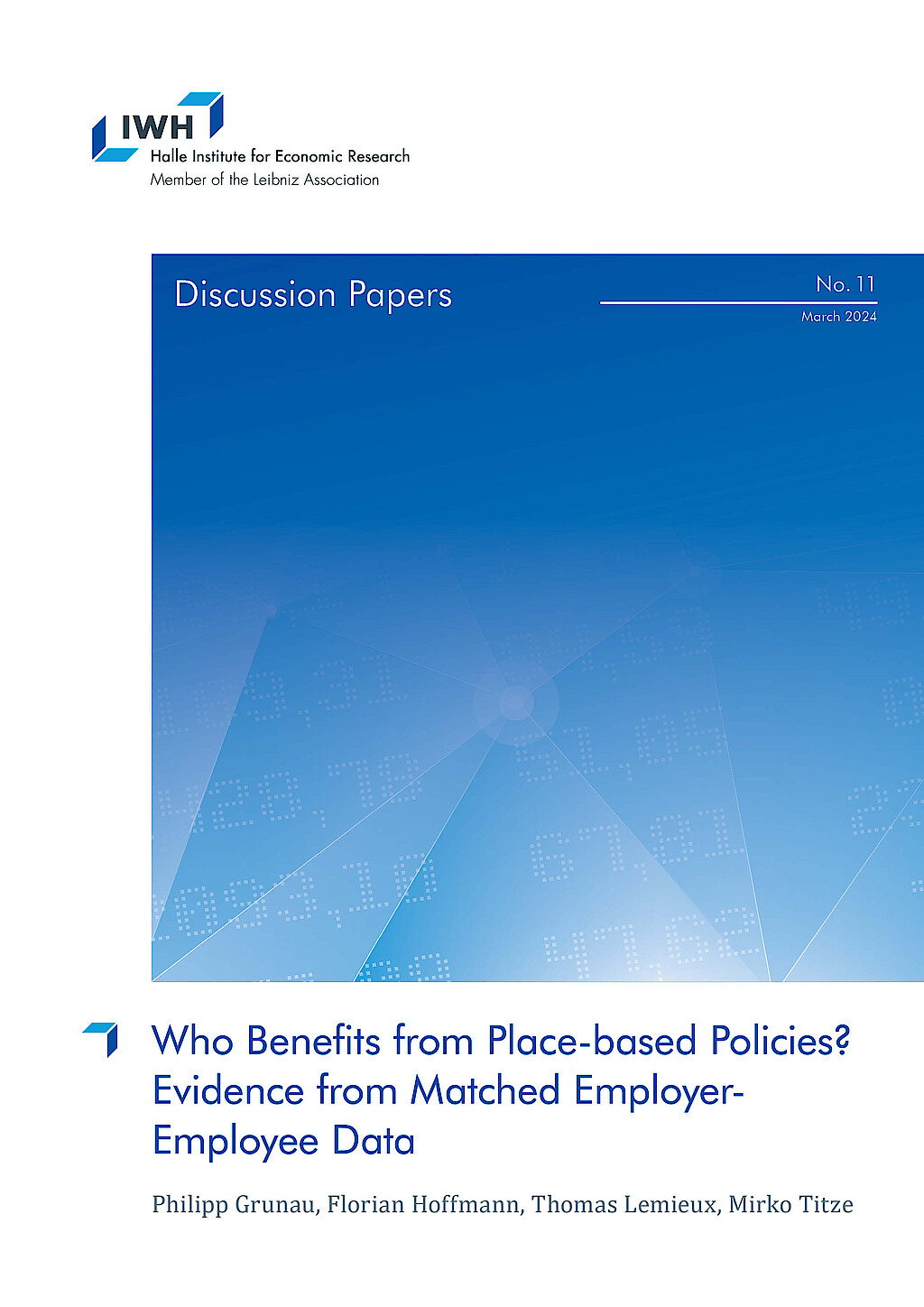
Who Benefits from Place-based Policies? Evidence from Matched Employer-Employee Data
We study the wage and employment effects of a German place-based policy using a research design that exploits conditionally exogenous EU-wide rules governing the program parameters at the regional level. The place-based program subsidizes investments to create jobs with a subsidy rate that varies across labor market regions. The analysis uses matched data on the universe of establishments and their employees, establishment-level panel data on program participation, and regional scores that generate spatial discontinuities in program eligibility and generosity. These rich data enable us to study the incidence of the place-based program on different groups of individuals. We find that the program helps establishments create jobs that disproportionately benefit younger and less-educated workers. Funded establishments increase their wages but, unlike employment, wage gains do not persist in the long run. Employment effects estimated at the local area level are slightly larger than establishment-level estimates, suggesting limited spillover effects. Using subsidy rates as an instrumental variable for actual subsidies indicates that it costs approximately EUR 25,000 to create a new job in the economically disadvantaged areas targeted by the program.





